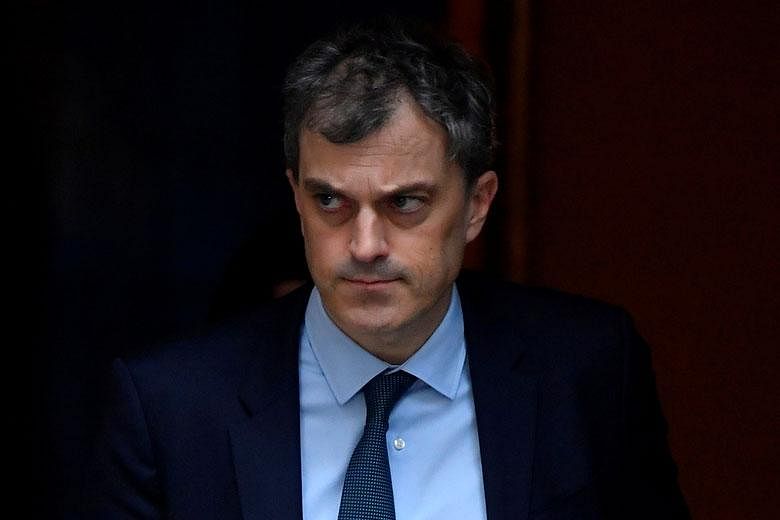LONDON (BLOOMBERG) - UK Prime Minister Theresa May could be on course for another Brexit defeat in Parliament as her chief whip warned he wasn't confident he had the numbers.
Julian Smith is the man charged with trying to rustle up enough support for her divorce package from the European Union (EU) - and he told her top ministers on Tuesday (March 5) that the vote next week will be tight, according to three people who spoke on condition of anonymity.
He predicted that in the votes that follow, a no-deal Brexit would be taken off the table, and the government would be instructed to seek an extension to talks. He also said he expected lawmakers to put down further amendments that would pass and put the UK on course to staying in the customs union.
Mrs May has no majority in Parliament, and so needs as many lawmakers in her Conservative Party as possible to back her deal. As some are implacably opposed, either because they don't want Brexit or they think she's staying too close to the EU, she also needs votes from the opposition Labour Party.
With Britain due to leave the 28-nation bloc in 24 days, Mrs May is pursuing a three-pronged strategy to try to get MPs to back her deal: Attorney-General Geoffrey Cox is trying to negotiate new language around the contentious Irish backstop - which keeps the UK in a customs union with the EU unless or until a future trade deal makes border checks unnecessary - to show how Britain could leave it if it chose.
He went to Brussels after the Cabinet meeting for more talks Labour lawmakers are being offered money for their districts, some of the hardest hit by austerity over the last decade, as well as assurances that workers' rights won't be watered down after Brexit Conservative Brexit-backers are being warned that if this deal is rejected, Mrs May will be forced to seek an extension to negotiations, potentially putting Britain's departure from the EU at risk.
But none of these are going well.
The details of the workers' rights announcement were met with scorn from trade unions when they were announced late on Tuesday. Union chiefs complained that Mrs May's promise that Parliament would get to assess future EU employment rules and decide whether to implement them in the UK fell short and weren't enforceable.
"These are flimsy procedural tweaks," Frances O'Grady, general secretary of the Trades Unions Congress, said in a statement.
This reaction matters, because it could help to sway Labour members of Parliament who are thinking about supporting Mrs May.
Labour MPs have already been dismissive of the money offered to their districts.
Meanwhile, Mr Cox's discussions with the EU broke up on Tuesday evening with neither side commenting. One person familiar with Mrs May's thinking said the government hadn't been expecting a breakthrough, and that negotiations could go into the weekend. That would allow little time for MPs to scrutinise any changes he manages to secure.
Although many of the 118 Tories who voted against Mrs May's deal in January are likely to swing behind her next week, she needs almost all of them, and some are currently looking unpersuaded.
Case in point: Jacob Rees-Mogg, who commands as many as 90 Tory pro-Brexit hardliners. He tweeted on Tuesday that Brexit "must not be stopped."











